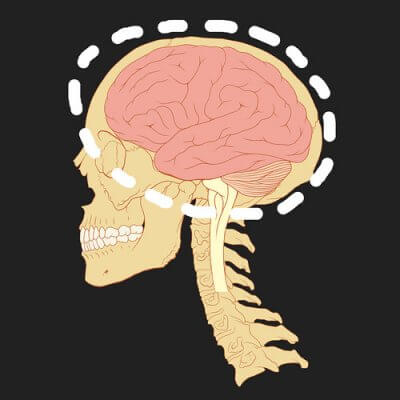What is Neuropsychiatry?
 by Andrea M. Darcy
by Andrea M. Darcy
Confused as to what kind of psychiatrist you need? What is neuropsychiatry anyway, and can it help your issue?
What is neuropsychiatry?
The word is essentially what it sounds like — an approach that is a hybrid of neuroscience and psychiatry.
Neuropsychiatry combines an understanding of mental health disorders with one of brain and nervous system problems, and is seen as a sub speciality of general adult psychiatry.
What does neuropsychiatry help with?
Neuropsychiatry helps with two categories of clients.
First and foremost would be those who have damage to or disease of the nervous system, and it’s causing them difficulties with moods, thinking, and behaviour. A classic example is dementia, which then causes mood swings or depression.
The second category of clients would be those who have all the symptoms of a neurological issue, but doctors can’t find any cause. An example is conversion disorder (more on that below).
So what is a neuropsychiatrist?
A neuropsychiatrist trains to be a psychiatrist (medical school followed by a psychiatry degree), then goes on to do an additional MSc in neuropsychiatry.
This means that they know how to do all the assessments a general psychiatrist can do, but also how to read brain scans, and carry out things like computerised testing for brain issues.
As for what their job entails, they offer assessments, diagnosis, ongoing support and treatment, referrals to other necessary specialists, and prescribe medication. Some will also offer medico-legal reports.
What are neuropsychiatric disorders?
Sometimes you might see the term applied to mental health disorders in children that have a neurological link, such as:
- attention deficit disorder (ADHD)
- anger issues
- conduct disorder.

By: J E Theriot
But strictly speaking, ‘neuropsychiatric disorder’ is another way to refer to a neurological disorder that also affects your moods, thoughts, and behaviours.
This includes:
- Alzheimer’s and dementia
- encephalitis
- epilepsy
- head injury
- multiple sclerosis
- Parkinson’s disease
- Tourette syndrome
- post-stroke symptoms
- post-substance abuse issues.
And it is also applied to medical issues with no known organic cause, that nevertheless present neurological symptoms. Like:
- conversion disorder (functional neurological disorder)
- chronic fatigue syndrome
- fibromyalgia.
Why is neuropsychiatry a growing field?
We are at a time in science where the connection between the body and mental health is accepted, and increasingly evidence-based.
And governments are recognising that neuropsychiatric disorders, particularly dementia and functional neurological disorder, have a huge knock-on cost if left untreated.
Conversion disorder
Conversion disorder (CD) is now referred to as ‘functional neurological symptom disorder’, or just ‘functional neurological disorder’ (FND).
A diagnosis referring to illness without known cause, it was historically called ‘hysteria’ and is still called ‘medically unexplained symptoms (MUS)‘.
The UK government sees functional neurological disorder as a growing concern, with an audit showing it costs the country billions per year. Sufferers are primarily working aged adults, constantly needing healthcare services and often out of the employment world due to chronic disability.
 Until recently NFD was recognised as occurring after a mental health episode, such as extreme stress or depression. But now, in America at least, and the latest version of their diagnostic manual the DSM-5, it’s not seen as necessary for a psychological trigger to exist. If there is one, then you might be given the older diagnosis of conversion disorder.
Until recently NFD was recognised as occurring after a mental health episode, such as extreme stress or depression. But now, in America at least, and the latest version of their diagnostic manual the DSM-5, it’s not seen as necessary for a psychological trigger to exist. If there is one, then you might be given the older diagnosis of conversion disorder.
Symptoms can include:
- a constant feeling of a lump in the throat
- fainting
- general physical weakness
- memory loss
- paralysis
- hearing and sight issues
- numbness
- tremors
- seizures.
An example of functional neurological disorder would be someone who has such weak legs they are in a wheelchair. But brain scans and investigation of the spinal cord simply can’t find a cause.
The NHS claims that medically unexplained symptoms account for up to 45% of all GP appointments in the UK, as well as half of new visits to hospital clinics.
General psychiatrist vs neuropsychiatrist
A general adult psychiatrist looks at how the outside world affects you. How do your environments, social interactions, culture, and experiences cause you to think and feel in certain ways?
A neuropsychiatrist also knows how to look at how your ‘inside world’ affect you. How do your neurological networks and genes affect the ways you think and feel?
Neuropsychiatrist or neuropsychologist?
Is there a difference? Yes. Both neuropsychiatrists and neuropsychologists study how brain issues affect thinking, moods, and behaviours. And both work to assess and rehabilitate clients whose brains have experienced changes.
The difference is one of education and medication. A neuropsychologist earns a doctorate in psychology, then goes on to study neuropsychology. A neuropsychiatrist is first a medical doctor, then studies psychiatry, then neuropsychiatry.
So while a neuropsychologist might use similar assessment tools and tests to a neuropsychiatrist, they can’t prescribe medication.
Experiencing mental health issues connected to a neurological issue? We offer psychiatry for mental health issues following head injury or stroke or connected to chronic degenerative disorders, CNS infections, and substance abuse.
 Andrea M. Darcy is a health and wellbeing expert, trained in person-centred counselling and coaching. She often writes about trauma, relationships, and ADHD, and advises people on how to plan their therapy journey. Find her on Instagram @am_darcy
Andrea M. Darcy is a health and wellbeing expert, trained in person-centred counselling and coaching. She often writes about trauma, relationships, and ADHD, and advises people on how to plan their therapy journey. Find her on Instagram @am_darcy




